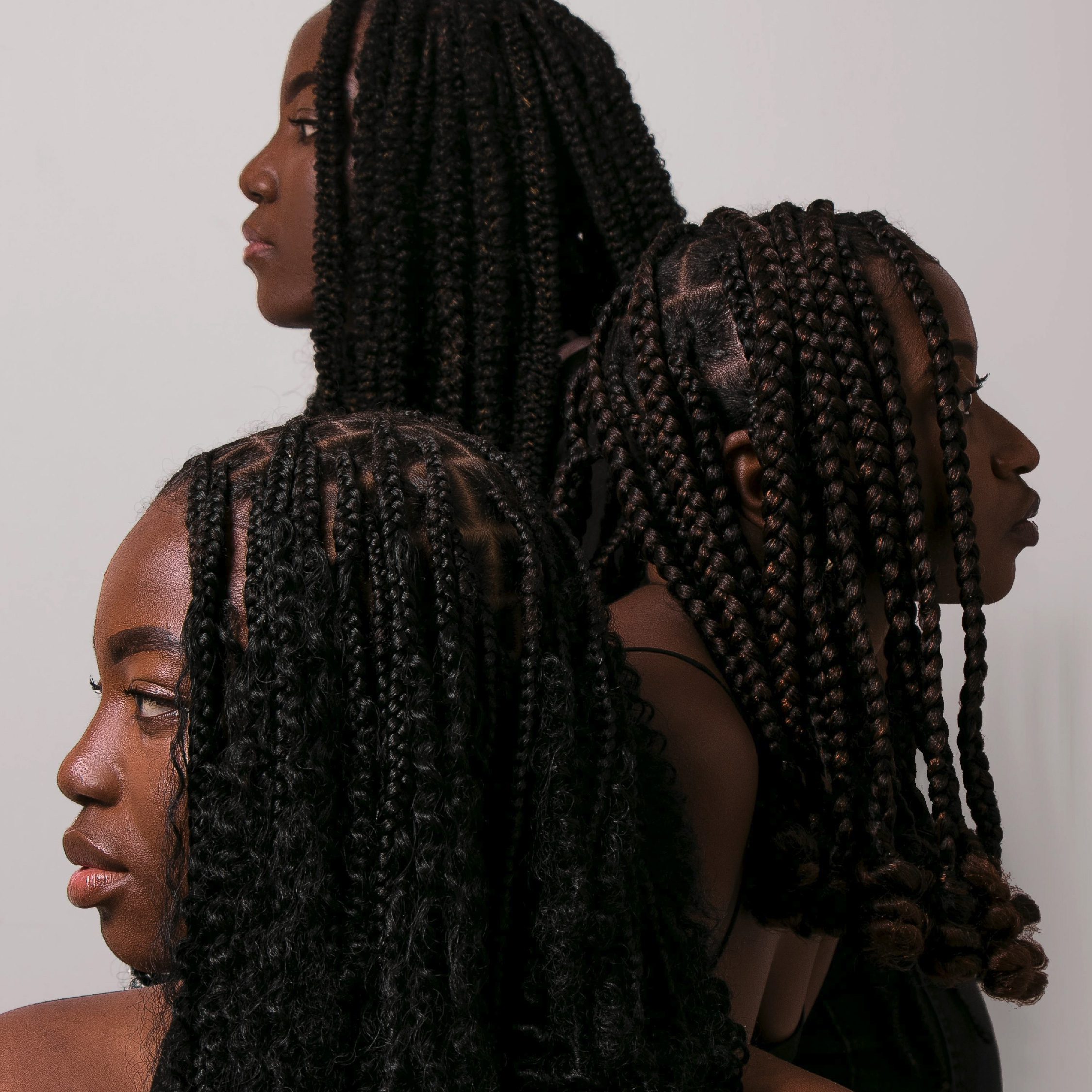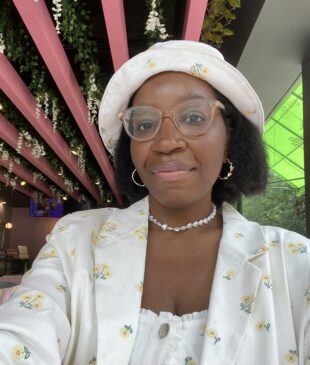Much has already been said about the health risks associated with using chemical hair straighteners such as relaxers, but now it appears there is also reason to be concerned about using certain types of braiding hair too.
A new Consumer Reports study found carcinogens, or cancer-causing chemicals, in synthetic braiding hair. The study tested heavy metals and volatile organic compounds (VOCs) in 10 popular synthetic hair brand products—from Magic Fingers and Sassy Collection to Sensationnel and Shake-N-Go. The results of the study found carcinogens in every single brand that was tested.
Just as shocking is the fact that three of the products were found to contain benzene, a known carcinogen that causes acute myeloid leukemia. All of the samples also contained a probable carcinogen called methylene chloride. Additionally, the report also shared that Consumer Reports tested for 65 different VOCs and each sample texted had “detectable levels of at least six VOCs.” However, it should be noted that VOCs were emitted when the braiding hair was heated to a boil in the lab, similar to dipping the braiding hair in boiling water to seal the ends of the hair.
Yet another alarming finding was the detection of lead in nine out of the 10 synthetic hair brands tested and that many users reported negative skin reactions, which may explain why so many people have a tendency to deal with an itchy or irritated scalp after getting braids installed.
Braiding Hair Remains Unregulated
The findings from this study are particularly concerning considering that synthetic braiding hair is widely targeted towards Black women, and more than 1 in 3 Black women use the product.
“Synthetic braiding hair is widely used by Black women and children across the U.S., often worn for weeks at a time,” said James Rogers, PhD, Director, and Head of Product Safety Testing for Consumer Reports. “As a father of two Black daughters, I know firsthand that getting braids is part of the culture, and alternatives to synthetic hair aren’t always accessible or affordable. Yet, despite its popularity, most synthetic braiding hair products lack ingredient disclosure, and they’re often worn for weeks at a time potentially exposing consumers—and braiders—to toxic chemicals for prolonged periods.”
He adds, “Consumer Reports heard from Black consumers about concerns over possible hazardous chemicals in synthetic braiding hair, which led to our investigation. Our research confirmed the presence of toxic chemicals in every sample we tested, raising urgent questions about the health risks faced by millions of Black consumers.”
Synthetic braiding hair remains unregulated by the U.S. Food and Drug Administration (FDA), leaving millions exposed to potential harm.
“It’s appalling that toxic chemicals are in these products with so little scrutiny from those who are supposed to protect people, like the FDA. Consumers should never have to risk their health when choosing personal care products, and yet, harmful ingredients in products marketed to Black women continue to go unaddressed,” said Oriene Shin, Manager of Safety Advocacy for Consumer Reports. “This inaction has failed Black women for too long, and policymakers should take the steps necessary to address these gaps and hold companies accountable that put consumers at risk.”
Working Toward Stricter Standards for Braiding Hair
Consumer Reports is now leading the charge towards demanding strict standards for safer braiding hair. The organization and its members have launched a new petition that calls on the FDA to assert its jurisdiction over synthetic braiding hair as a cosmetic product and work towards holding companies accountable for getting dangerous chemicals out of these products. Consumer Reports is also urging the FDA to investigate synthetic braiding hair and set strict standards for the products by limiting dangerous chemicals, particularly known carcinogens such as benzene, and heavy metals like lead. They believe that the FDA should also require companies to fully disclose all ingredients so that consumers have transparency about the potential hazards in their braiding hair.
Along with spearheading the petition, Consumer Reports plans to partner with national and state advocates to fight for safer personal care and hair products for Black consumers. The organization is supporting state-level efforts like the New York Beauty Justice Act, which would ban some of the most toxic substances found in personal care and cosmetic products sold in New York.
To keep up with the Consumer Reports efforts towards ensuring safer braiding hair, be sure to follow @consumerreports on Instagram.


